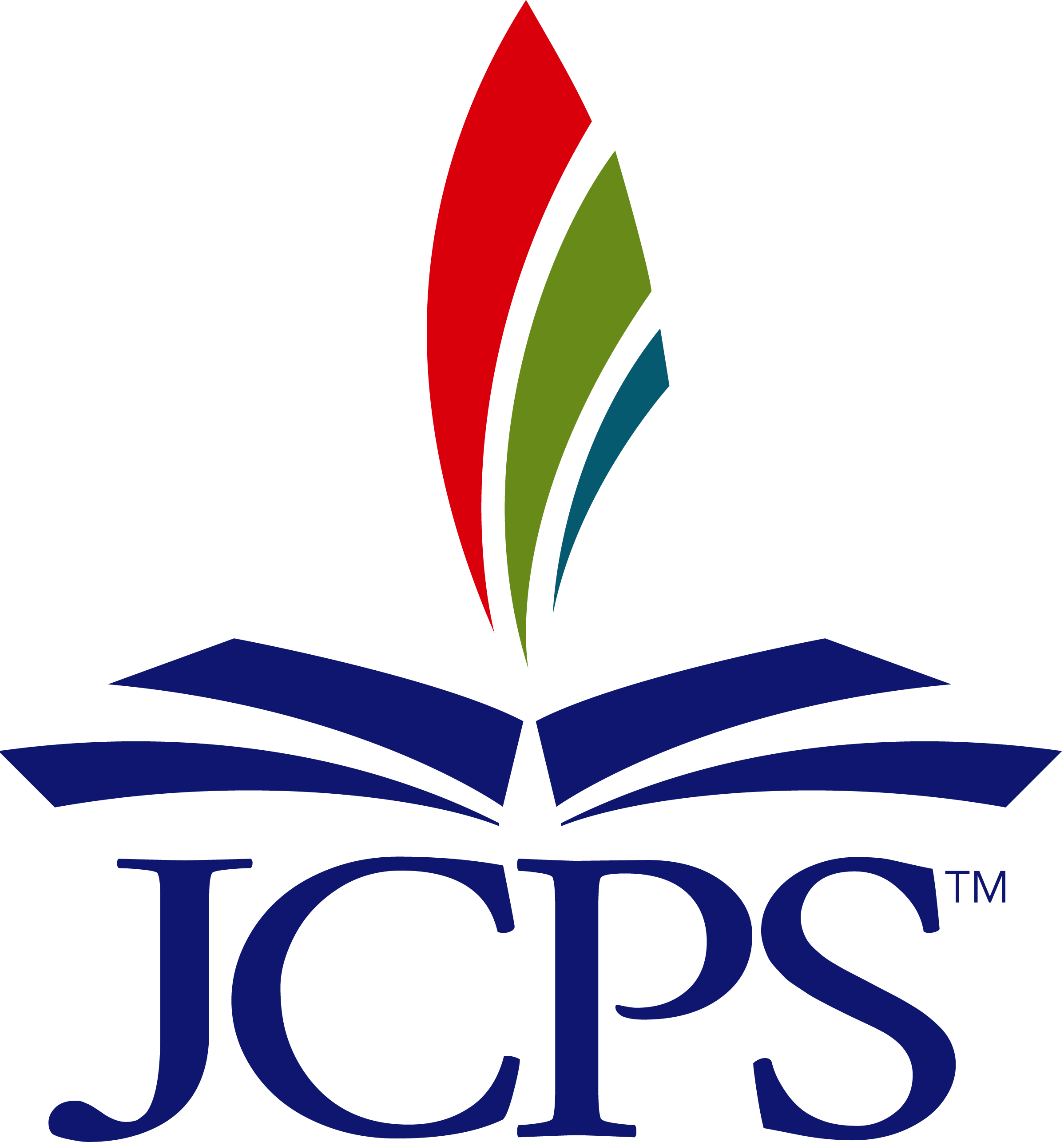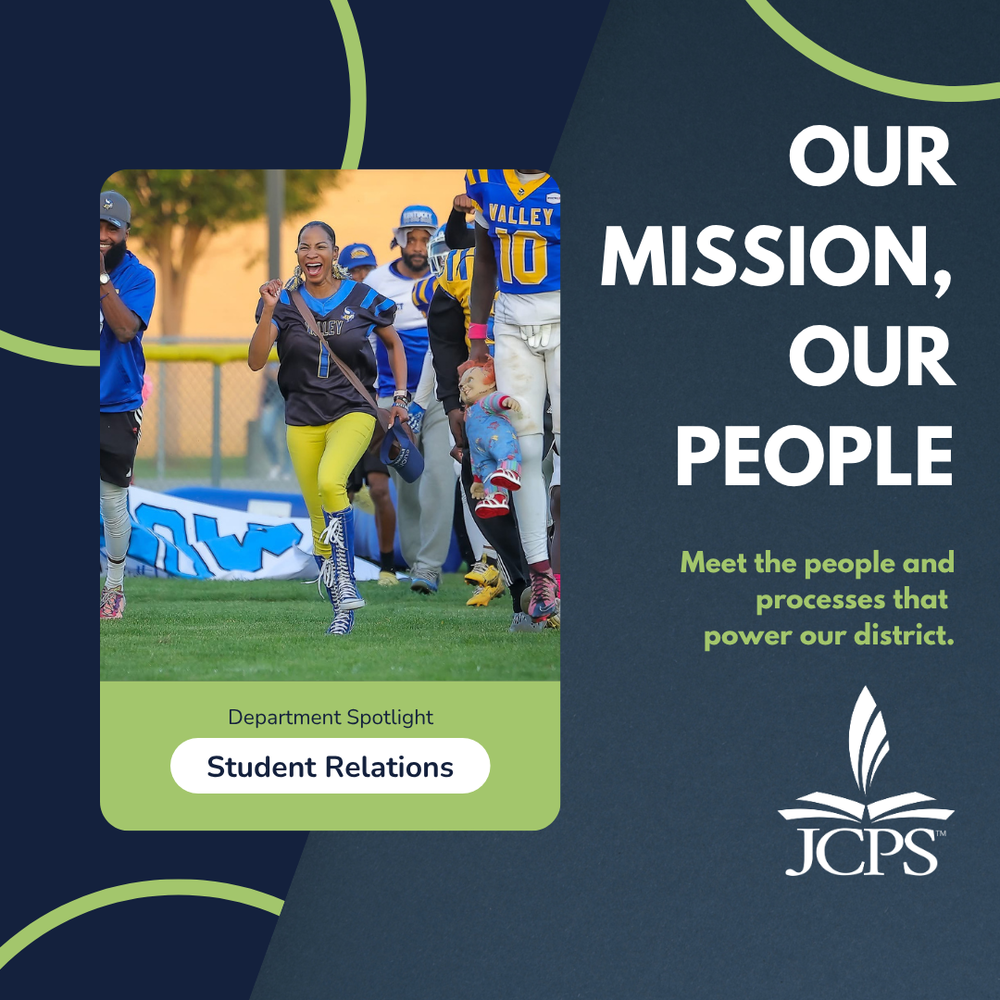For many families, a visit to the Jefferson County Public Schools (JCPS) Student Relations office is emotional. Parents may feel angry and confused. Students may be frustrated or fearful about what comes next. For some, this meeting marks the first step toward an alternative school placement—a moment that can feel daunting.
That’s when the department’s Associates in Re-engagement and Transition (ARTs) step in to help. Their job is to make sure students and families feel supported, heard, and connected to the right resources.
“It’s not how you start, it’s how you finish.”
Tenesha Marshall, one of Student Relations’ three ARTs, said every student’s story is about more than a single mistake—it’s about what happens next.
“I always tell my families, it’s not how you start, it’s how you finish,” she said. “Finish strong. This is just a little bump in the road.”
Last year, Marshall worked with a JCPS student and football player who was referred to alternative placement after a serious behavior incident. This weekend, she watched his return to the football field after transitioning back to his resides school.
“It was hard on the family, devastating,” she said of his alternative placement. “But he served his time, returned to his home school, and had a heck of a game Friday night. He gave me a fist bump, and I looked him in the eye to let him know I was proud of him.”
Moments like that remind Marshall why the work matters: it helps students rebuild confidence, make better choices, and see that everyone deserves a second chance.
Supporting students beyond discipline
While the Student Relations division handles difficult alternative placement decisions, its mission extends far beyond discipline. The team provides resources, counseling connections, and support to help students get back on track, primarily when behavioral challenges stem from trauma or mental health struggles.
Marshall and the division’s two other ARTs work with students referred for Level-4 behaviors, the most serious category of infractions, which can include things like terroristic threatening, assault, or weapons-related incidents.
Whether a student is being considered for alternative school placement or counseling-only services, they meet with an ART for an intake process that assesses the whole child. ARTs ask students about their strengths, interests, and challenges to determine which resources—such as grief counseling, substance abuse counseling, or mentoring—could help.
“We talk to them about the behavior incident, but also about what they could have done differently," Marshall said. “We want them to think outside the box and reflect on better choices.”
If a student is assigned to an alternative school, the ARTs help streamline the transition. They handle orientations, prepare enrollment paperwork in advance, and ensure students are enrolled within five days.
For students who receive counseling-only services, ARTs follow up after three and six weeks, tracking behavior, attendance, and grades to reduce the chances of repeated infractions.
“Our job is about more than just deciding whether a student goes to an alternative school,” said Dr. Kristie O’Bannon, assistant director of Student Relations. “We want to make sure we set a professional, warm, and caring tone. It’s serious business. But we want to make sure that you are heard and that you have all the resources available, because at the end of the day, we want your child to be successful.”
Building trust and calming tensions
Parents often arrive at the Student Relations division upset or defensive, sometimes recalling their own past experiences with discipline in school. ART staff rely on empathy and trauma-informed de-escalation strategies to build trust.
“A lot of times parents leave feeling calmer, listened to, and even thankful,” O’Bannon said.
Former JCPS student Janiah Sullivan knows how challenging the process can be. She said she remembers feeling scared and resistant to change after a behavior incident led to her expulsion from Eastern High School and assignment to Breckinridge Metropolitan High School.
Clear expectations and communication are critical during a transition like that, Sullivan said.
“I had to get to a place where I could mentally accept what was going on,” she said. “It didn’t matter who was telling me it was going to be ok.”
At Breck-Metro, Sullivan said teachers and staff created a supportive environment that helped her rehabilitate and succeed.
She’s now a freshman at Spalding University, where she’s studying nursing.
Holistic Support for Families
The ART position is relatively new, created three years ago when the district shifted from using “assessment counselors.” Leaders recognized that students needed more support, not just in receiving resources, but in successfully transitioning into and out of alternative schools.
Marshall recalled a recent meeting with a high school student whose father was murdered when he was eight. The student received minimal counseling immediately after the incident, but none since then.
“A lot of times, students may be struggling with serious mental health issues from past traumas,” Marshall said. “If they never get the resources they need to deal with the underlying issues, the behaviors will not improve. So I tell them, ‘I’m so glad you’re here, because we can get to the bottom of this, give one-on-one attention, and then look into other resources to help.’”
Today, Student Relations also manages specialized placement options, including schools designed for pregnant students, credit recovery, and other unique needs. Once students are ready to return to their home schools, the Social Emotional Learning team helps them re-engage and transition successfully.
Ultimately, the work of Student Relations staff is rooted in compassion and dignity.
“Our mantra here is that we work in the spirit of excellence,” O’Bannon said. “Families know we tried our best. We want every student to have the resources and support they need to be successful.”

